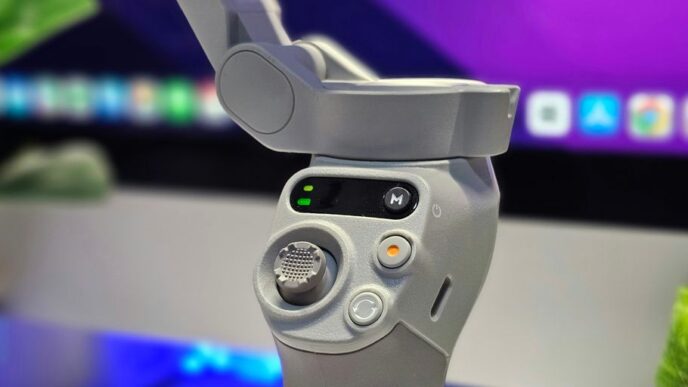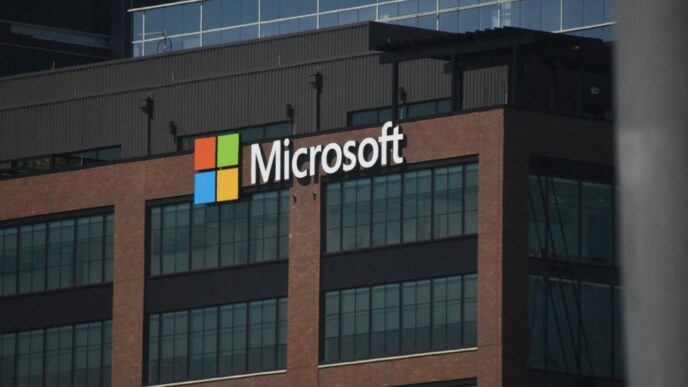HR functions have been evolving with the times to include additional functionalities along with their usual administrative responsibilities. While the Human Resource Management System (HRMS) has transformed the way organizations handle HR processes, it should also keep up with the changing dynamics of the HR department in organizations.
With technological advancements and shifting workplace trends, HRMS software is set to become more intelligent, automated, and employee-centric. Let us explore the future of HRMS software and how businesses can prepare for the next wave of HR technology automation.
Key Trends Shaping the Future of HRMS
Some of the key trends that are shaping the future of HRMS include:
Artificial Intelligence
Artificial Intelligence (AI) and Machine Learning (ML) have revolutionized HR management software by automating tasks, providing advanced decision-making options, and improving the overall efficiency of HR operations. For example, predictive analytics allows HR teams to anticipate employee needs, detect potential attrition risks, and optimize their recruitment strategies. Such innovations will become more advanced in the future, resulting in better efficiency and enhanced results.
Cloud-Based HRMS
Similarly, cloud-based HRMS solutions are expected to grow as companies require flexibility, security, and cost-efficiency. Cloud-based systems allow HR teams to access their employee data remotely, enabling seamless management of hybrid and remote workforces. Additionally, cloud platforms provide seamless integration with other enterprise applications, ensuring a unified HR ecosystem, which can also scale according to the company’s growth, ensuring long-term sustainability.
Employee Experience
Employee experience is slowly transforming from an optional consideration into a critical priority for organizations. Hence, future HRMS solutions will focus on personalized employee journeys, offering self-service portals, AI-driven career growth recommendations, and wellness programs. On the other hand, interactive dashboards will provide employees with insights into their performance, training opportunities, etc. developing engagement with their company and improving job satisfaction.
Advanced HR Analytics
Data and analytics will play an essential role in the future of HRMS software as businesses will utilize real-time analytics to make informed decisions on employee performance, workforce planning, etc. Even talent acquisition will be undertaken using HR analytics to find and recruit talent best suited for the work culture. Moreover, advanced reporting and visualization tools will help HR leaders identify trends, enabling succession planning, measuring employee productivity, and optimizing HR strategies for increased HR productivity.
Blockchain
Blockchain is a relatively newer technology being implemented in the HR software domain. It is especially relevant in areas like payroll, identity verification, compliance management, etc. as it offers enhanced security and transparency. In the future, by using blockchain-based digital contracts, companies can also streamline their onboarding processes, ensuring tamper-proof employee records.
Mobile-first HR Solutions
With the rise of remote and hybrid work, mobile access has become a necessity for HR software. Hence, future HRMS payroll platforms will be designed with a mobile-first approach, allowing employees and HR managers to access key functionalities on the go. Mobile HRMS apps can also provide real-time options for approvals, leave requests, attendance tracking, etc. improving overall efficiency and accessibility for employees and HRs.
The Role of HRMS in the Future Workplace
The workplace of the future will be defined by transformative technologies and efficient processes. Hence, the relevance of HRMS will increase to support the HR teams in actively engaging their staff members, supporting data-backed decisions, as well as ensuring compliance with the changing statutory norms and regulations.
Here are some of the ways HRMS will impact the modern workplace:
Remote Work Support
Cloud-based HRMS solutions will ensure smooth collaboration and compliance, regardless of employee and HR’s location or time. Through these solutions, HR will be able to access and make changes as and when required, without any restrictions. Similarly, with increased flexibility and scalability, companies can stay with the same HRMS provider for longer, resulting in reduced long-term maintenance costs.
Automated HR Tasks
AI-powered automation will reduce the administrative burden on HR teams, allowing them to focus on strategic initiatives. Additionally, advanced HRMS will also be able to analyse company data and provide suggestions for the HR teams for enhanced productivity and increased efficiency. Modern HRMS have become good at providing predictive analytics and it is bound to improve in the future, resulting in increased HRMS utility.
Intelligent Processing
Smart automation will minimize compliance risks by ensuring accurate payroll processing, tax calculations, and adherence to labour laws. With intelligent processing, HRMS solutions will be able to tackle unique scenarios related to employee payroll, further increasing HR efficacy. AI-based HRMS will also be able to actively engage the staff resulting in better work culture and reduced attrition.
Challenges to address with Future HRMS
While the future of HRMS software looks promising, organizations must be prepared to address certain challenges:
Data Security & Privacy Risks
With increased reliance on AI and cloud-based solutions, organizations must implement robust cybersecurity measures to protect employee data. Data security and integrity are critical for technologies like AI to work correctly, and if they are being used in an organization, they automatically become a part of organizational security. Hence, companies wishing to use advanced technologies will also be required to implement robust data security and integrity measures.
Implementation Complexities
Upgrading to a modern HRMS also requires investment in infrastructure, training, and integration with existing systems. While choosing a dedicated cloud-based HRMS can offset these responsibilities to the service provider, companies choosing to implement and deploy these solutions in-house should be prepared to spend time, effort and money in deploying them.
Adoption & Training Needs
Similarly, businesses must ensure that HR teams and employees are equipped with the necessary skills to maximize the potential of advanced HRMS features. Hence, they will be required to undertake training to efficiently use their HRMS, along with having to adopt a different way of undertaking things in their organization.
Conclusion
The future of HRMS software will be driven by innovation, automation, and employee-centric solutions. As companies embrace AI, ML, cloud computing, and data analytics, HRMS platforms will become more powerful and strategic. By embracing these advancements, organizations can build robust future-proof HR operations.














